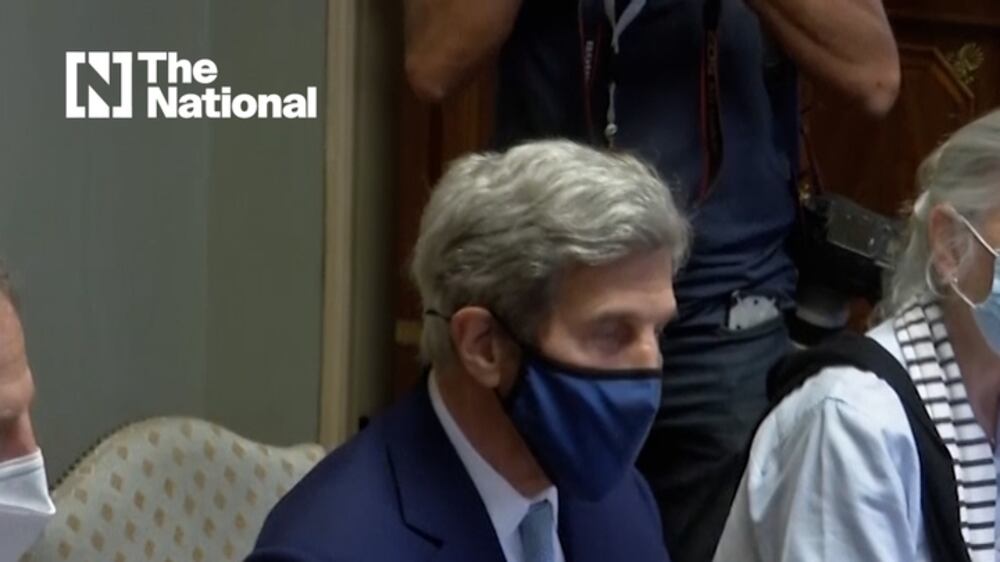The US is planning to increase funding to Egypt to help it convert to solar energy and move away from fossil fuels, special envoy for climate John Kerry said in Cairo on Wednesday.
Egypt was "blessed to be the number one country in the world for the opportunity of solar renewable energy," Mr Kerry said after meetings with Foreign Minister Sameh Shoukry.
Egypt still relies on fossil fuels for its energy needs, and a gigantic cloud of air pollution often hovers over its capital Cairo, home to about 20 million people.
But President Abdel Fattah El Sisi's government is taking steps towards renewables.
Mr El Sisi has said that he aims to take greater advantage of the optimal sun and wind conditions for energy harvesting.
Officials plan to have 20 per cent of the country’s energy needs met by renewables before 2022, and 43 per cent by 2035.
Mr Kerry said switching to renewable energy could also help Egypt to create jobs.
About a third of Egyptian citizens live below the poverty line, a government study from 2019 showed.
And the effects of the coronavirus pandemic have also hit hard the tourism-dependent nation.
Mr Kerry also said the world had a long way to go before it met international goals that were set by the historic 2015 Paris climate accord.
US President Joe Biden, who has said fighting global warming is among his highest priorities, had the US rejoin the historic Paris accord in the first hours of his presidency, undoing the US withdrawal ordered by predecessor Donald Trump.
Major emitters of greenhouse gases are preparing for the next UN climate summit, in November in Glasgow, the UK.
The summit aims to relaunch global efforts to keep rising global temperatures to below 1.5°C above pre-industrial levels, as agreed to in the Paris accord.






